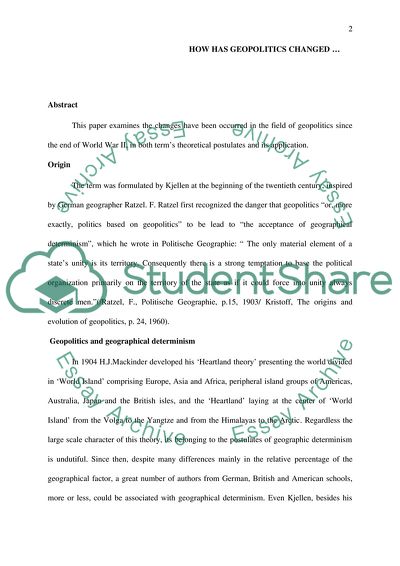How has geopolitics changed the end of WWII Essay. Retrieved from https://studentshare.org/miscellaneous/1546494-how-has-geopolitics-changed-the-end-of-wwii
How Has Geopolitics Changed the End of WWII Essay. https://studentshare.org/miscellaneous/1546494-how-has-geopolitics-changed-the-end-of-wwii.


